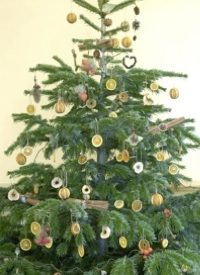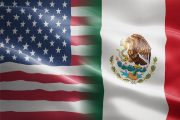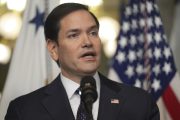
After receiving heated criticism from Republicans and conservative groups, the White House swiftly delayed implementation of a proposed 15-cent tax on fresh-cut Christmas trees. In what critics were calling a government attack on Christmas, Acting Administrator of Agricultural Marketing David Shipman announced Tuesday that the Secretary of Agriculture would appoint a new federal board contrived to help market the Christmas tree industry.
Rep. Steve Scalise (R-La.) was quick to criticize the program, describing the tax as a “Grinch” move by the Obama administration. The program was intended to launch Wednesday, but public outcry spurred a quick retraction from the White House. “I can tell you unequivocally that the Obama administration is not taxing Christmas trees. Whats being talked about here is an industry group deciding to impose fees on itself to fund a promotional campaign,” White House spokesman Matt Lehrich assured Fox News. “That said, USDA is going to delay implementation and revisit this action.”
The alleged purpose of the Christmas Tree Promotion Board is to operate a “program of promotion, research, evaluation, and information designed to strengthen the Christmas tree industrys position in the marketplace; maintain and expand existing markets for Christmas trees; and to carry out programs, plans, and projects designed to provide maximum benefits to the Christmas tree industry.” The program of “information” involves a marketing campaign to “enhance the image of Christmas trees and the Christmas tree industry in the United States.”
To help fund the board, a 15-cent fee (20 cents for imported producers) would be imposed on all sales of fresh-cut Christmas trees by companies selling more than 500 trees per year.
The idea was originally proposed by the National Christmas Tree Association (NCTA) in 2009, which claims the move is widely supported by the Christmas tree farming industry. The NCTA indicated that the program would deeply benefit the marketplace, as it would expand the industry by bolstering awareness through research and effective market-based mechanisms. According to the trade group, the program will “be similar to recognizable programs for milk, cotton and beef that have brought consumers commodity-oriented messages such as ‘Got Milk?’ and ‘Beef, Its whats for dinner.'”
The ultimate goal, the NCTA notes, is to forge a promotional campaign that would laud the advantages of natural rather than artificial trees. “Theres something about a real tree the beauty, the aroma, the traditions,” one proposed radio ad read. “For many people, Christmas just wont be the same without a real Christmas tree. And real trees are farm grown right here in North America. They are also environmentally friendly as another tree is planted for each one harvested.”
In the process of orchestrating the new program, the NCTA argued that the “fake tree industry” has ramped up advertising while the “real tree industry” has drastically reduced its funding to public relations and marketing. “More than 1,000 people donated more than $900,000 for 2004 promotion and marketing programs,” an NCTA official cited. “By 2007, donations to the market expansion activities had dropped to about $400,000.” This of course breeds the question: What makes the “real tree industry” so special as to gain special government treatment while the “fake tree industry” is funding expensive programs to promote its products?
Shipman had the audacity to say the mandatory Christmas tree fee “is not a tax nor does it yield revenue for the Federal government.” However, the federal government mandates that Christmas tree sellers collect the 15-cent per tree fee and remit it to the government-established board. Its not optional. Further, the “fee” is confiscated from the private sector and funneled into a program established by the Secretary of Agriculture. And how is this not a tax?
Critics unleashed bold opposition immediately following the announcement. “The administrations new Christmas tree tax and ad campaign is clear evidence of misaligned and misguided priorities in Washington,” charged Rep. Robert Aderholt (R-Ala.), in a news release. Sen. Jim DeMint (R-S.C.) elaborated on Aderholts assertion in a blog post entitled “Crony Capitalism, Christmas Trees, and the Stupidest Tax of All Time.” The Senator posed the question, “Does anyone in America anyone? believe that Christmas trees have a bad image that needs taxpayer-subsidized improvement?”
Although the NCTA claims consumers would likely not be affected by the tax, there is nothing stopping Christmas tree producers from handing the burden over to buyers. In fact, this tactic is generally the case with all taxes. But fortunately for those who will be celebrating Christmas with a natural tree, President Obama quickly retracted the plan, at least for this year.
David Addington, writing on the Heritage Foundations blog, summed up the argument: “The economy is barely growing and nine percent of the American people have no jobs. Is a new tax on Christmas trees the best President Obama can do? And, by the way, the American Christmas tree has a great image that doesnt need any help from the government.”



